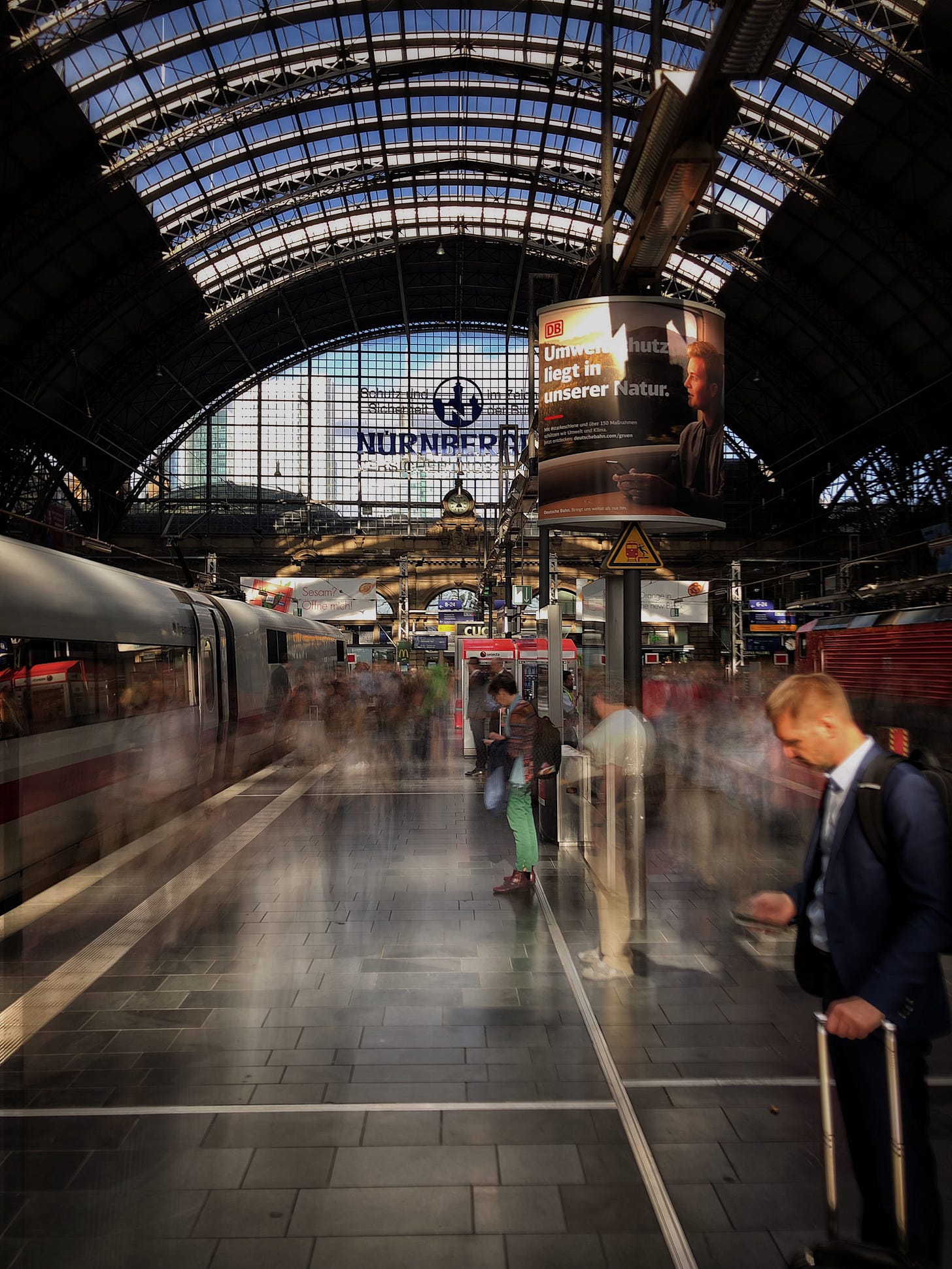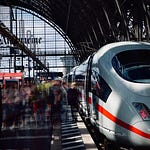As I'm sitting on the train to France to go on my Camino, I'm thinking about all the gear that I brought to make my videos and my audio, and it made me think about what it is that I'm doing.
So I have a few ideas that have been on my mind lately because in the age of social media and connectivity, the democratization of self-expression has unleashed a torrent of creativity. All these individuals that would otherwise have remained unheard, it allows them to share their ideas and creations at the touch of a button. And that's great.
And yet, as we navigate this brave new world of likes, shares and followers, we're caught in a paradox. The more we seek to express ourselves authentically, the more we risk falling prey to the siren song of the algorithm, to the relentless pursuit of validation and virality, the threatens to strip our art of its purity and purpose.
The Tension of Authenticity vs. Popularity
So as a creator in this digital age, I'm not the only one acutely aware of this tension. I do feel the pull of the algorithm, the temptation to chase the rabbit down the hole of metrics and analytics, to tailor my content - “content!“- to the whims of the masses in the hopes of garnering more views, more likes, more subscribers. But I also know that to give in to this temptation would be to lose something essential. It would be to sacrifice the very thing that makes my art worth creating in the first place.
For me, the act of creation is a deeply personal one. It comes from an innate desire to express myself and to share how I see the world with the world. My desire is to document the experience of being alive. So when I sit down to make a video, I do it not because I feel obligated to produce content on a schedule or to meet the expectations of an audience, but because I'm compelled by a force greater than myself (as corny as that sounds), a burning need to give form to the ideas and emotions that swirl within me. In this sense, my art is an extension of my very being, a manifestation of my subjective perspective and experiences. To compromise its integrity for the sake of popularity or profit would be to betray myself on the deepest level. It would be to sell my soul for the fleeting rush of external validation.
The Allure of Audience and the Danger of Relying on It
And yet, as much as I may resist the pull of the algorithm, I can't deny the allure of an audience. There's something deeply gratifying about knowing that my work has resonated with others, that my work has touched them in some way or sparked a conversation. In a world where we are increasingly isolated and disconnected, the ability to forge genuine connections through creative endeavors is a beautiful gift.
But therein lies a danger. The more we come to rely on these connections, the more we risk losing sight of what truly matters. We begin to measure our worth as creators by the metrics of engagement and reach, rather than by the depth and authenticity of our self-expression. We can start to see our art as a means to an end, rather than an end in itself.
Staying True to Artistic Integrity
It's a delicate balance, one that requires constant vigilance and self-reflection. As creators, we must learn to walk the tightrope between the desire for connection and the need for artistic integrity. We must be willing to stick to creating for the sake of creation itself, to pour our hearts and souls into our work without expectation or attachment to outcome.
That's easier said than done, of course, in a world where attention is currency and the algorithm reigns supreme. It can be all too tempting to chase the rabbit, to get caught up in the game of metrics and analytics. But to do so is to risk losing the very thing that makes us artists in the first place. The ability to see the world through our own unique lens and to share that vision with others.
In the end, the key to navigating all this lies in staying true to ourselves and our artistic vision. We have to keep creating from a place of authenticity and passion, not a desire for external validation. We must stay willing to experiment and take risks and to follow our instincts and trust in the process, even when the algorithm might dictate otherwise. In doing so, we can not only preserve the integrity of our art, but also open up ourselves to the possibility of something greater.
Chekhov said, "The role of the artist is to ask questions, not answer them." So this new democratization of self-expression may have turned everything into competition. But it has also given us an unprecedented opportunity to share our truth with the world. It's up to us to rise above the noise and the chatter to stay focused on what truly matters. The joy and the meaning we find in the act of creation itself. In the end, that's the only metric that truly counts.
So these are my thoughts on the ambivalence of doing what I'm doing, and what many are doing.
I think this democratization is a great win for the world. Because imagine all those creators whose work you would never have seen if it weren't for these digital platforms. The key is to stay true to yourself.
Because everything is art.
The only question is: is it good art - or is it bad art?
Anyway, see you on the trail.
Bye bye…












Share this post